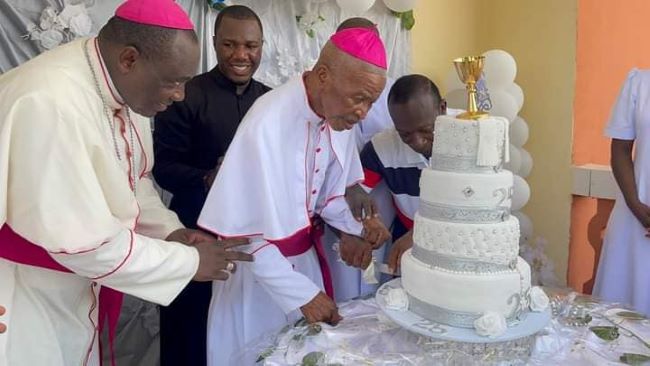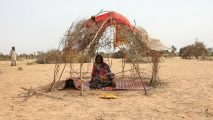Categories
Archives
- April 2024
- March 2024
- February 2024
- January 2024
- December 2023
- November 2023
- October 2023
- September 2023
- August 2023
- July 2023
- June 2023
- May 2023
- April 2023
- March 2023
- February 2023
- January 2023
- December 2022
- November 2022
- October 2022
- September 2022
- August 2022
- July 2022
- June 2022
- May 2022
- April 2022
- March 2022
- February 2022
- January 2022
- December 2021
- November 2021
- October 2021
- September 2021
- August 2021
- July 2021
- June 2021
- May 2021
- April 2021
- March 2021
- February 2021
- January 2021
- December 2020
- November 2020
- October 2020
- September 2020
- August 2020
- July 2020
- June 2020
- May 2020
- April 2020
- March 2020
- February 2020
- January 2020
- December 2019
- November 2019
- October 2019
- September 2019
- August 2019
- July 2019
- June 2019
- May 2019
- April 2019
- March 2019
- February 2019
- January 2019
- December 2018
- November 2018
- October 2018
- September 2018
- August 2018
- July 2018
- June 2018
- May 2018
- April 2018
- March 2018
- February 2018
- January 2018
- December 2017
- November 2017
- October 2017
- September 2017
- August 2017
- July 2017
- June 2017
- May 2017
- April 2017
- March 2017
- February 2017
- January 2017
- December 2016
- November 2016
- October 2016
- September 2016
- August 2016
- July 2016
- June 2016
Featured
 Bishop Francis T. Lysinge @ 25!
Bishop Francis T. Lysinge @ 25!  Understanding the Biya Francophone regime’s support for the Israeli genocide in Gaza
Understanding the Biya Francophone regime’s support for the Israeli genocide in Gaza  Poverty under Biya: Cameroonians embrace Chinese language for brighter futures
Poverty under Biya: Cameroonians embrace Chinese language for brighter futures  Cameroon is broken: Who can fix it?
Cameroon is broken: Who can fix it?  Ethiopia: U.S Senator Cardin Statement on the Killing of Bate Urgessa
Ethiopia: U.S Senator Cardin Statement on the Killing of Bate Urgessa
Most Commented Posts
 4 Anglophone detainees killed in Yaounde
4 Anglophone detainees killed in Yaounde
19 comments Chantal Biya says she will return to Cameroon if General Ivo Yenwo, Martin Belinga Eboutou and Ferdinand Ngoh Ngoh are sacked
Chantal Biya says she will return to Cameroon if General Ivo Yenwo, Martin Belinga Eboutou and Ferdinand Ngoh Ngoh are sacked
13 comments Anglophone Nationalism: Barrister Eyambe says “hidden plans are at work”
Anglophone Nationalism: Barrister Eyambe says “hidden plans are at work”
12 comments The Anglophone Problem – When Facts don’t Lie
The Anglophone Problem – When Facts don’t Lie
12 comments Largest wave of arrest by BIR in Bamenda
Largest wave of arrest by BIR in Bamenda
10 comments
Latest Tweets
Error: access keys missing in Themify > Settings > Twitter SettingsFeatured
-

Bishop Francis T. Lysinge @ 25!
-

10 Million Cameroonians lived on less than $1.80 per day
-

Football: Xavi to remain as Barcelona coach
-

Biya regime delays bond sale amid regional market strain
-

Historic agreement between Nigeria and Cameroon to tackle wildlife crime
-

Southern Cameroons refugees in Nigeria receive farm seedlings
-

Douala: Investment Forum wraps up with honors for investment champions
© Cameroon Concord News 2024
31, August 2017
Anglophone Crisis: Too soon to cry victory 0
Wednesday’s announcement of the release of Anglophone leaders by the Cameroon government has been hailed by many as a major step in the right direction and many observers think that such a measure by the country’s head of state could pave the way for genuine and sincere dialogue about the country’s political future. Cameroon is central Africa’s major economic power, but over the last ten months, the country has been caught in a dangerous political storm following complaints by Anglophones about their marginalisation for close to sixty years. Many government praise-singers are already marketing the country’s leader as a visionary and a man of peace. Some hold that he is a leader who has the interest of his country at heart and will stop at nothing to promote peace and unity.
But critics have been fast at pointing out that for a man who has the country’s interest at heart, such a major decision could have been taken long before to spare the country the pain and pressure it has gone through following the arrest of innocent and responsible Anglophone leaders such as Barrister Felix Agbor Nkongho Balla, Dr. Fontem Neba, Lord Justice Paul Ayah Abine and Mr. Mancho Bibixy. They argue that the threat to disrupt school resumption has been hanging over the government like the Sword of Damocles and this threat will continue to be on the table for as long as the government continues to treat Anglophones as second-class citizens. These critics, some of whom are legal experts, contend that the government of Cameroon should be dragged to court for illegally arresting and detaining its own citizens. They argue that the Anglophone struggle will continue to be a nightmare that will not go away anytime soon as long as the ruling elites continue to live on their Ivory Tower.
They posit that Anglophones could be a minority in Cameroon, but they constitute a nightmare to the government which has the nasty habit of not listening to the people they govern. Some elements of the Anglophone Diaspora hold that the release of their leaders is not an end in itself, but a means to an end. In their view, it is a major victory in a battle that will be for fought for many years, but they are sure they have the right stomach for a fight. They point out that the government has succeeded in doing one thing – unite Anglophones – and this unity will be leveraged to bring justice and equity to the people of West Cameroon.
They argue that releasing their leaders is a good decision, but it is too early for any sensible Anglophone to cry victory, adding that the arrest of their leaders was not the cause of the crisis, but rather an offshoot of a crisis that has been in the making for more than fifty years. The illegal arrest and detention of Anglophones was what caused the crisis to escalate and the government’s decision to do the right thing is just a step towards de-escalating the tensions, but the battle must continue until the government and Anglophones come to a conclusion that will be satisfactory to both parties.
They also contend that they must continue to mount pressure and keep a careful eye on the government. The government, they say, is like a leopard. It is not going to lose its stripes anytime soon as its bag of tricks is still full, adding that manipulation is its stock in trade, but Anglophones, especially those in the Diaspora, will not be buying into any illusion the government may want to sell. They insist that since violence is the only language the government understands, they will continue to disrupt government activities both abroad and in Cameroon. They point to the successful disruption of recent government missions in South Africa, Canada, England and Belgium, adding that the law is for everyone and if the custodian of the law – the government – is always quick at violating the law, they too will continue to deliver chaos to the government until a clear and definitive solution to the Anglophone problem is found.
Meanwhile, following yesterday’s announcement, Anglophone leaders and activists have been meeting to find an appropriate response to the decision. Meetings in Brussels, Washington DC and London which went into the early hours of Thursday have not yet produced the right response. Federalists and independentists have been disagreeing over the way forward. Differences on how to respond are still being settled behind the scenes and different factions are seeking to promote their perspectives. Proponents of total independence, who have been characterizing federalists as eternal optimists who think that they are capable of reforming eternal sinners, are simply not buying into the noise that is being made by the Yaounde government. To them, their objective is clear. They have had enough of a country that has marginalized its own people for close to six decades. They argue that the government is used to speaking from both sides of its mouth, adding that the government of “La Repulique”, a country they consider as their neighbour, will never act without ulterior motives. The interim leader of Southern Cameroons, Sesekou Ayuk Julius Tabe, who is on a world tour to promote the recognition of his country, is gradually winning hearts and minds, and is being quoted as being indifferent to the Biya-staged dramain Yaounde, as his focus is to drum up support for Southern Cameroons which, in his view, will soon be the continent’s newest country.
For federalists, this could be an opportunity for the form of the state to be discussed. The government, they say, comes out of this situation bruised and fragile, adding that a little pressure will bring the reluctant and ageing government officials to the negotiating table where they will table their constitution for a federal system of government in Cameroon. While others hold that the children have already paid a huge price and should be allowed to go back to school, hardliners are still pushing for a boycott of schools so as to bring the struggling government to the negotiating table. They point to the dictatorial tendencies of the government, arguing that the country’s government is noted for its bad faith and can never be trusted. The decree to release the leaders, in their view, could be a distraction and they are simply not going to fall into this “honey trap” that the government is setting for the Diaspora.
However, there is hope in the future. Many Anglophones still think that something good can come out of yesterday’s decision to release Anglophone leaders. They are calling on the government to build on yesterday’s decision to bring different factions to the negotiating table. They argue that though lots of mistakes have been made, the country can still pull together to make the crisis a thing of the past. They, however, hold that the government should recognize errors of the past and should seek ways and means to calm flaring Anglophone tempers. They also want the government to ensure that future generations do not go through the pressure and chaos that have been playing out in the country for a long time. They think a good constitution as well as goodwill will go a long way in restoring peace in Cameroon. In their view, they are still watching the government very closely and are waiting to see what measures will follow yesterday’s decision.
The Editorial Desk
Cameroon Concord News Group